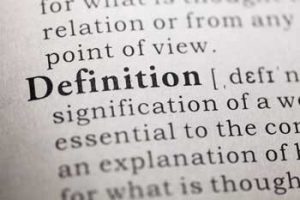The term Master Franchisee refers to an individual or entity granted the exclusive right by a franchisor to develop and operate franchises within a defined geographic territory, often including the authority to recruit and support sub-franchisees. The Master Franchisee effectively acts as a “mini-franchisor” within their region.
A Master Franchisee is a key participant in a multi-tiered franchise structure, particularly in large domestic or international markets. Under a Master Franchise Agreement, the franchisor grants the Master Franchisee rights to operate and sub-franchise within a specific territory. The Master Franchisee is responsible for finding and supporting sub-franchisees, providing training, marketing, and operational assistance, and ensuring all franchise units follow brand standards. In return, the Master Franchisee pays the franchisor an initial fee for territorial rights and ongoing royalties, while collecting a portion of the fees and royalties from sub-franchisees. This model allows franchisors to scale quickly without the burden of managing every unit directly, while leveraging the Master Franchisee’s local market knowledge, language, and cultural expertise.
Additional Definition: A system whereby a franchisor grants to a party (usually referred to as the Master Franchisee) the right to operate franchised outlet and to grant sub-franchises to third parties, within an agreed-upon geographic area. The Master Franchisee serves as if it were the “franchisor” within the defined territory, providing localized support services within the territory. The Master Franchisee typically retains a portion of the royalty as compensation for its services.
 The Master Franchisee concept gained traction in the 1960s as franchising began its global expansion. U.S. and European brands recognized that local expertise was essential for success in foreign markets, where laws, culture, and consumer behavior differed significantly. The Master Franchise model allowed franchisors to delegate operational responsibilities to trusted regional partners who could recruit and manage local franchisees effectively. Over time, this structure evolved into a proven model for rapid growth, especially in the hospitality, food, and service industries. Today, franchisors frequently use the Master Franchise structure alongside variations such as Area Development and Regional Franchising Agreements to tailor their growth strategies.
The Master Franchisee concept gained traction in the 1960s as franchising began its global expansion. U.S. and European brands recognized that local expertise was essential for success in foreign markets, where laws, culture, and consumer behavior differed significantly. The Master Franchise model allowed franchisors to delegate operational responsibilities to trusted regional partners who could recruit and manage local franchisees effectively. Over time, this structure evolved into a proven model for rapid growth, especially in the hospitality, food, and service industries. Today, franchisors frequently use the Master Franchise structure alongside variations such as Area Development and Regional Franchising Agreements to tailor their growth strategies.
Learn more at: The Educated Franchisee, 3rd Edition
| Role | Definition | Key Responsibilities | Relationship |
|---|---|---|---|
| Master Franchisor | The original franchisor who owns the franchise brand and grants rights to a Master Franchisee to develop a specific territory. | Develops the franchise system, provides training and brand materials, and receives a share of royalties and fees from the Master Franchisee. | Direct relationship with the Master Franchisee. |
| Master Franchisee | An individual or entity that acquires the rights from the Master Franchisor to develop and operate franchises within a defined region. | Recruits and supports sub-franchisees, provides local training and marketing, ensures compliance, and shares royalties with the Master Franchisor. | Acts as an intermediary between the Master Franchisor and sub-franchisees. |
| Sub-Franchisee | A local business owner who operates a franchise unit under the Master Franchisee’s authority, following the same brand system and standards. | Runs day-to-day operations, pays fees and royalties to the Master Franchisee, and adheres to the franchisor’s operating standards. | Contractual relationship with the Master Franchisee, not directly with the Master Franchisor. |
| Area Developer | An individual or company granted rights to open and operate multiple franchise units within a defined territory but without the right to sub-franchise. | Directly develops and operates all locations within their area and supports their own units under the franchisor’s guidance. | Has a direct contractual relationship with the franchisor. |
The Master Franchisee plays a central role in large-scale franchise expansion, bridging the gap between the franchisor and sub-franchisees. Distinct from the Master Franchisor, Sub-Franchisee, and Area Developer, the Master Franchisee assumes both entrepreneurial and managerial responsibilities to grow the brand within a designated territory while maintaining alignment with the franchisor’s systems and standards.